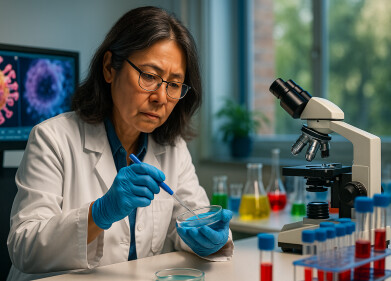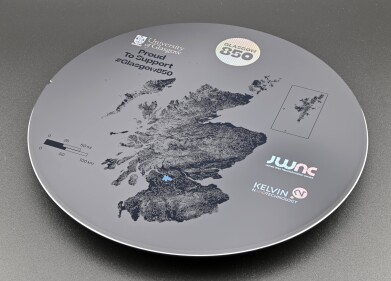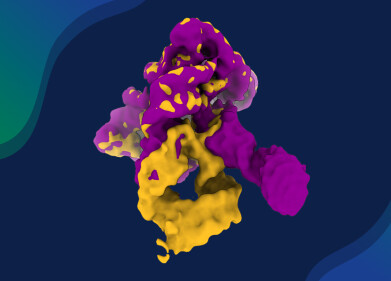-
 Picture: ‘Trust’ by Nick Youngson CC BY-SA 3.0 Pix4free
Picture: ‘Trust’ by Nick Youngson CC BY-SA 3.0 Pix4free
Research news
Study reveals strong public trust in science worldwide
Jan 27 2025
Largest global research undertaken since COVID-19 pandemic showed scientists remain trusted
An international study on public trust in science ─ conducted across 68 countries ─ has found that most people trust scientists and believe they should be more involved in society and policymaking.
The study gathered 71,922 respondents ─ with 2,008 of them from the UK ─ providing the largest global dataset on trust in scientists since the COVID-19 pandemic.
“The UK has a generally high level of trust in science, ranking above many European countries, including Denmark, Germany, Sweden, and Belgium. “
Trust in scientists is higher among women, older individuals, and those with more education. Interestingly, a conservative political orientation is linked to lower trust in science in North America and [some] parts of Europe. However, this pattern does not hold globally, suggesting that the political leadership may influence such attitudes in different regions,” said Dr Eleonora Alabrese, an economist from the University of Bath, who collected responses for the UK sample.
Key findings
- Widespread trust: Across 68 countries, the study found that a majority of the public have relatively high trust in scientists with a mean trust level of 3.62
(1 to 5 scale, where 1 = very low trust and 5 = very high trust. Majorities also perceived scientists to be qualified (78%), honest (57%) and concerned about people’s well-being (56%). - Desire for scientists’ engagement: A large majority (83%) agreed that scientists should communicate science with the public. Only a minority (23%) believe that scientists should not actively advocate for specific policies. A smaller majority ─ 52% ─ believed that scientists should be more involved in the public policy-making process.
Global rankings of how populations placed their trust in science/scientists:
- Most: Egypt topped the list, followed by India, Nigeria, Kenya and Australia.
- Middle of the pack: The US ranked 12th, ranked 15th, Canada 17th and Sweden 20th.
- Least: At the bottom was Albania ranked 68th, preceded by Kazakhstan 67th, Bolivia 66th, Russia 65th and Ethiopia 64th.
Published in Nature Human Behaviours, this research was conducted by TISP, a Harvard University-based consortium led by Dr Viktoria Cologna, of Harvard and the federal Swiss university ETH Zurich (Institute of Technology) and Dr Niels G Mede of the University of Zurich which included 241 researchers from 169 institutions worldwide.
“Our results show that most people, in most countries, have relatively high trust in scientists and want them to play an active role in society and policymaking,” said Dr Viktoria Cologna who was lead researcher on the project.
Challenges
However, the findings highlighted some areas of concern. Globally, fewer than half of respondents ─ 42% ─ believed that scientists pay attention to others’ views. The findings also show that many people, in many countries, feel that the priorities of science do not always align well with their own priorities.
Participants assigned high priority to research dedicated to improving public health, solving energy problems and reducing poverty. Research on developing defence and military technology was assigned a lower priority. In fact, participants explicitly believe that science prioritises developing defence and military technology more than they desire.
Recommendations
The consortium of academics recommends that scientists take these results seriously and find ways to be more receptive to feedback and open to dialogue with the public. Also consider ways, especially in Western countries to reach out to conservative groups, and consider their role as scientists with the wider community, about how to set priorities that align with public values.
“While trust in science remains generally high, even a small decline in trust from a minority could influence how scientific evidence is used in policymaking.
“These findings are crucial for scientists and policymakers working to maintain public trust in science,” said Dr Eleonora Alabrese.
For further reading please visit: 10.1038/s41562-024-02090-5
Digital Edition
Lab Asia Dec 2025
December 2025
Chromatography Articles- Cutting-edge sample preparation tools help laboratories to stay ahead of the curveMass Spectrometry & Spectroscopy Articles- Unlocking the complexity of metabolomics: Pushi...
View all digital editions
Events
Jan 21 2026 Tokyo, Japan
Jan 28 2026 Tokyo, Japan
Jan 29 2026 New Delhi, India
Feb 07 2026 Boston, MA, USA
Asia Pharma Expo/Asia Lab Expo
Feb 12 2026 Dhaka, Bangladesh


















